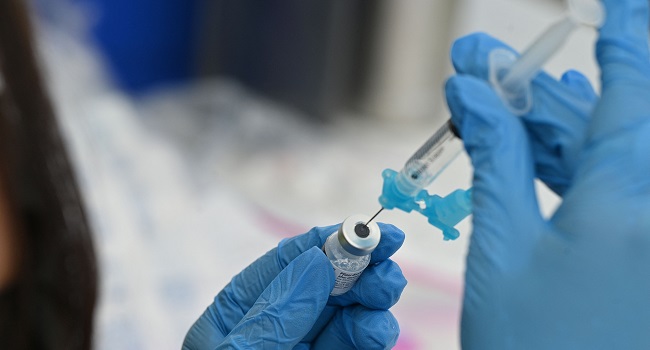
The Lagos State Commissioner for Health, Professor Akin Abayomi, has revealed that over 135,000 residents in the state are currently living with HIV, even as the government steps up efforts to improve healthcare delivery and reduce disease prevalence.
He disclosed this during the 2025 Lagos State Ministerial Press Briefing held at Alausa, Ikeja, while highlighting the achievements of the health sector in the past year under the administration of Governor Babajide Sanwo-Olu.
“The estimated hypertension prevalence in Lagos is 20%, 70 per cent unaware. Obesity prevalence in Lagos State stands at 12 per cent, while 135,224 people living in Lagos State are living with HIV,” he stated.
On malaria treatment, he emphasised that “no patient would be treated for the disease without a confirmed test result, as the state intensifies efforts to reduce misdiagnosis and inappropriate drug use.”
Uncertified Herbal Medications
The commissioner further cautioned residents against the use of uncertified herbal medications, stressing the need for strict adherence to regulatory guidelines.
“Any herbal medicine not certified by the National Agency for Food and Drug Administration and Control (NAFDAC) should not be consumed,” he warned. “Those who take unapproved concoctions are putting their health at risk, and the government will not be liable for the consequences.”
Medical Personnel Shortage
Addressing the critical issue of healthcare workforce shortages, he disclosed that Nigeria currently has approximately 40,000 practising doctors, giving a ratio of one doctor to every 5,000 citizens—far below the World Health Organisation’s recommended standard. He added that the country needs at least 300,000 doctors to bridge the gap.
“In Lagos alone, we have 7,000 doctors but need 33,000 more, as well as an equivalent number of nurses, to meet the healthcare needs of our population,” he stated.
To mitigate this challenge, the state government has significantly increased the intake capacity of the Lagos State University College of Medicine (LASUCOM) from 200 to 2,500 students.
According to him, this move is aimed at boosting the pipeline of critical medical professionals in the state.
Abayomi also shed light on the state’s push towards digital healthcare. He announced the recent launch of the Smart Health Information Platform (SHIP), developed in collaboration with the Ministry of Innovation, Science and Technology.
He noted that the platform will enable the deployment of a robust health information exchange system—one that aggregates, analyses, and presents health data to guide patient care, medical practice, and policy decisions.
“Digital health is a core pillar of our strategy. With SHIP, we are building a single data platform to streamline healthcare information and ensure informed decision-making,” he said.
Abayomi also outlined ongoing infrastructural projects set to be commissioned in the coming year.
Among the projects nearing completion are the Massey Children’s Hospital on Lagos Island, the Mental Health Institute at Ketu Ejirin in Epe, and the Iba-Ojo General Hospital.
According to the commissioner, the Massey Children’s Hospital is currently 70 per cent completed and, along with the others, will be delivered within the next 12 months.
“We are building healthcare infrastructure that will not only serve the people of Lagos but also reverse the trend of brain drain,” said Professor Abayomi. “Our goal is to encourage Nigerian doctors in the diaspora to return home by creating a more conducive environment to practise.”
In her remarks, the Special Adviser to the Governor on Health, Dr Kemi Ogunyemi, stated that the recent diphtheria outbreak has been contained through aggressive vaccination and advocacy campaigns across the state.
She also urged residents to maintain clean environments, especially as the rainy season approaches, to prevent the outbreak of waterborne and vector-borne diseases.
Channels NewsHIV








